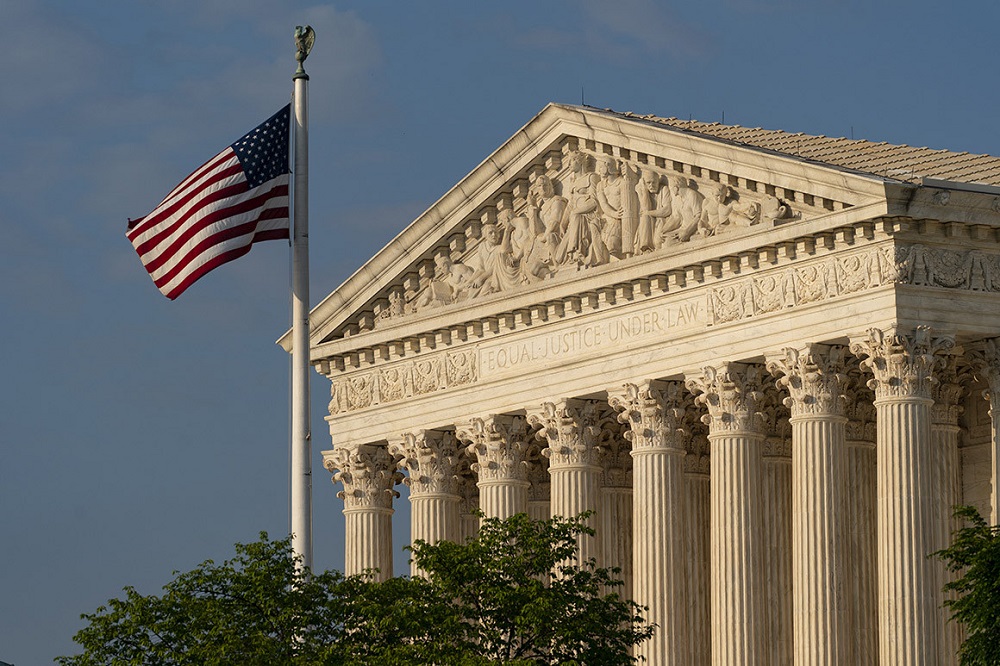
OPINION: This article contains commentary which may reflect the author’s opinion
The Supreme Court of the United States issued a ruling recently in favor of veterans who want to file lawsuits to reclaim their prior jobs with state employees in the case of Torres v. Texas Department of Public Safety.
So, a divided court allowed a veteran to sue a state-agency employer for violating his federal rights.
Le Roy Torres was working as a Texas state trooper when he was called to active duty in the U.S. Army Reserves. He served in Iraq and was honorably discharged, but his lungs were damaged by the burn pits that the military used to dispose of toxic waste. On his return, his injuries made him unable to perform all the duties of a state trooper, and he requested to be assigned a comparable job in the Department of Public Safety. The department allegedly refused to accommodate him.
Holding: By ratifying the Constitution, the states agreed their sovereignty would yield to the national power to raise and support the Armed Forces; Congress may exercise this power to authorize private damages suits against non-consenting states, as in the Uniformed Services Employment and Reemployment Rights Act of 1994.
Judgment: Reversed and remanded, 5-4, in an opinion by Justice Breyer on June 29, 2022. Justice Kagan filed a concurring opinion. Justice Thomas filed a dissenting opinion, in which Justices Alito, Gorsuch, and Barrett joined.
“Upon entering the Union, the States implicitly agreed that their sovereignty would yield to federal policy to build and keep a national military,” Justice Stephen Breyer wrote in the opinion. “States thus gave up their immunity from congressionally authorized suits pursuant to the ‘plan of the Convention,’ as part of ‘the structure of the original Constitution itself.’”
Conservatives, Justices Clarence Thomas, Samuel Alito, Neil Gorsuch, and Amy Coney Barrett dissented.
In his dissent, Thomas said the majority’s ruling rests on “contrived interpretations” of the court’s prior decisions, meaning a ‘having an unnatural or false appearance or quality.’
Thomas dissent wrote, “But the Court’s proposed distinction makes no sense. For one, it conflicts with the Court’s longstanding characterization of Congress’ commerce power as plenary. See, e.g., Armour & Co. v. Virginia, 246 U. S. 1, 6 (1918). As long as the goods mentioned by the Court are in fact part of “interstate commerce,” then Congress has authority to regulate their travel at all times. For another, it does nothing to distinguish Congress’ commerce power from its power to raise and maintain a military.
Following the Court’s logic, one could just as easily say that Congress’ power under the Army and Navy Clauses is “less than complete” because “federal regulation of soldiers involves men and women who, before they join the military, are subject to regulation by a sovereign other than the Federal Government.” Despite the Court’s efforts, its “completeness” analysis simply fails to distinguish the Army and Navy Clauses from other Article I powers delegated to Congress in the plan of the Convention.”
The ruling that favors Veterans does nothing, however, to expose who it was who betrayed the court by leaking information about Roe V. Wade to the media.
And after the betrayal of the court recently, it is noteworthy to remember these concepts.
“The republic endures and this is the symbol of its faith,” Evans said in his Cornerstone Address at the Supreme Court Building.
But that respect and trust are falling apart for the American people, and one of the recent debacles at the court is the way the government is handling the disastrous leak from the SCOTUS ahead of the Roe V. Wade decision in June.
Nearly three months after someone leaked the U.S. Supreme Court’s draft decision overturning Roe v. Wade, there’s still no update on who the culprit is.
According to Fox News, investigators have narrowed the list of suspects.
“But multiple sources tell Fox News the investigation into the approximately 70 individuals in the court who may have had access to the draft opinion has been narrowed,” the outlet reported. “Sources say much of the initial focus was on the three dozen or so law clerks, who work directly with the justices on their caseload. Fox News had previously reported those law clerks were asked to turn over their cellphones and sign affidavits. It is unclear whether those clerks have all cooperated,” Conservative Brief reported on Saturday, reminding readers of the conflict.
The outlet reported:
Prior to that, a report from the Associated Press revealed that the Supreme Court had refused to provide any updates on the investigation.
“Less than 24 hours after the unprecedented leak of the draft opinion that overturned Roe v. Wade, Chief Justice John Roberts ordered an investigation into the egregious breach,” the AP reported.
“Since then? Silence. The Supreme Court won’t say whether it’s still investigating. The court also won’t say whether the leaker has been identified or whether anyone has been disciplined. Or whether an outside law firm or the FBI has been called in. Or whether the court will ever offer an accounting of what transpired. Or whether it has taken steps to try to prevent a repeat,” the AP added.
“This leak was intended to intimidate the justices and threaten the whole institution of the Court. Now the Court is facing an all-out assault from the left with an assassination attempt on a sitting justice and elected Democrats declaring an entire branch of government ‘illegitimate,’” Missouri GOP Sen. Josh Hawley said.
Source: The Republic Brief